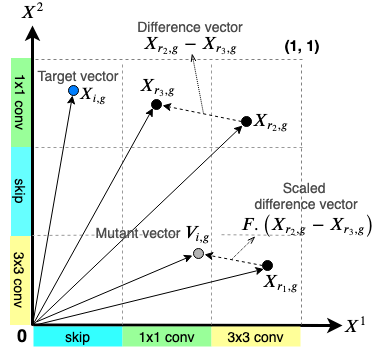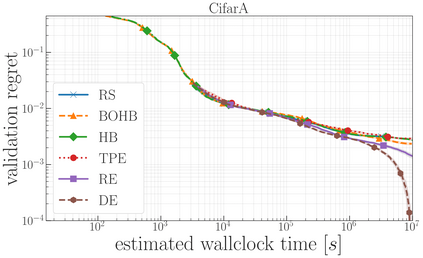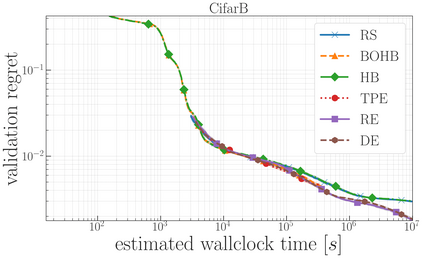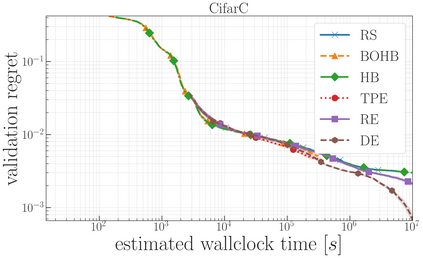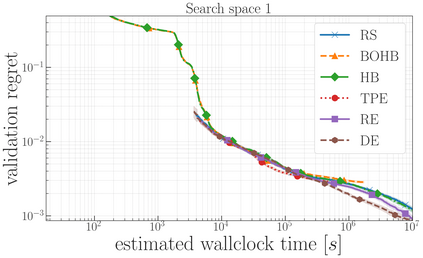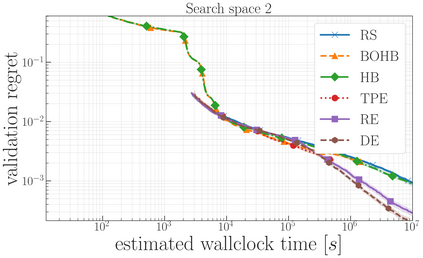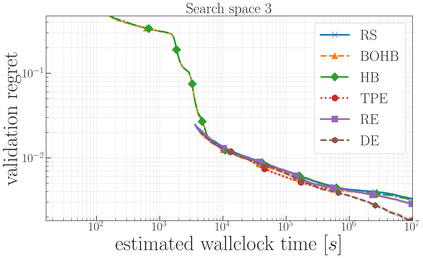Neural architecture search (NAS) methods rely on a search strategy for deciding which architectures to evaluate next and a performance estimation strategy for assessing their performance (e.g., using full evaluations, multi-fidelity evaluations, or the one-shot model). In this paper, we focus on the search strategy. We introduce the simple yet powerful evolutionary algorithm of differential evolution to the NAS community. Using the simplest performance evaluation strategy of full evaluations, we comprehensively compare this search strategy to regularized evolution and Bayesian optimization and demonstrate that it yields improved and more robust results for 13 tabular NAS benchmarks based on NAS-Bench-101, NAS-Bench-1Shot1, NAS-Bench-201 and NAS-HPO bench.
翻译:神经结构搜索(NAS)方法依靠一种搜索战略,以决定下一个评价哪些结构以及评估其业绩的业绩估计战略(例如,利用全面评价、多信仰评价或一发模型);在本文件中,我们侧重于搜索战略;我们将差异演变的简单而有力的演进算法引入NAS群体;利用最简单的全面评价业绩评价战略,我们全面将这一搜索战略与正规化的演变和巴耶斯优化进行比较,并表明在NAS-Bench-101、NAS-Bench-1Shot1、NAS-Bench-Bench-201和NAS-HPO的13个表格NAS-Bench-101、NAS-Bench-1Shot1、NAS-Bench-Bench-201和NAS-HPO基础上,该搜索战略取得了改进和更强有力的成果。


